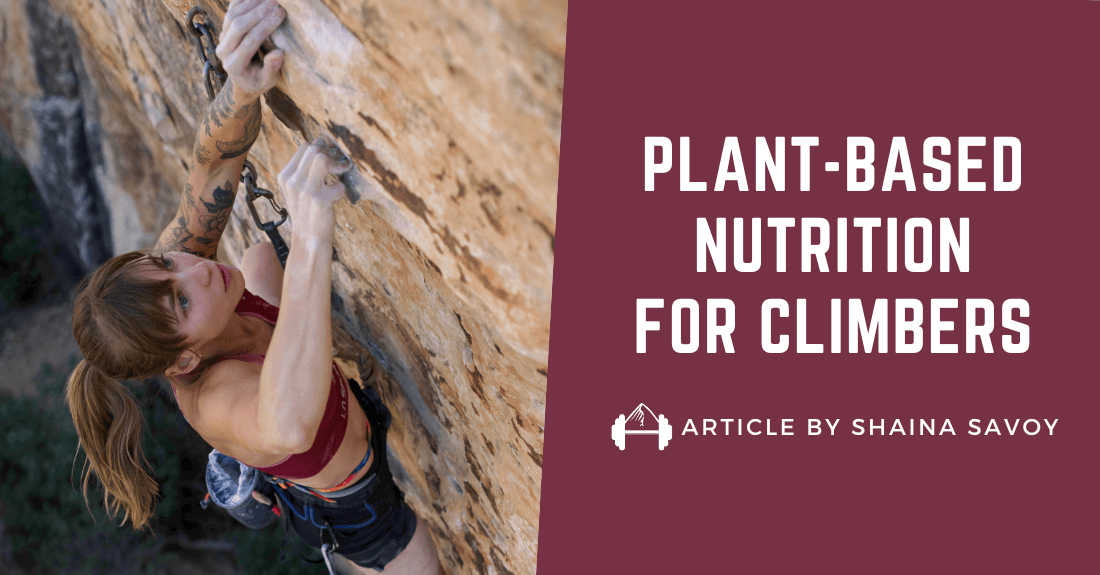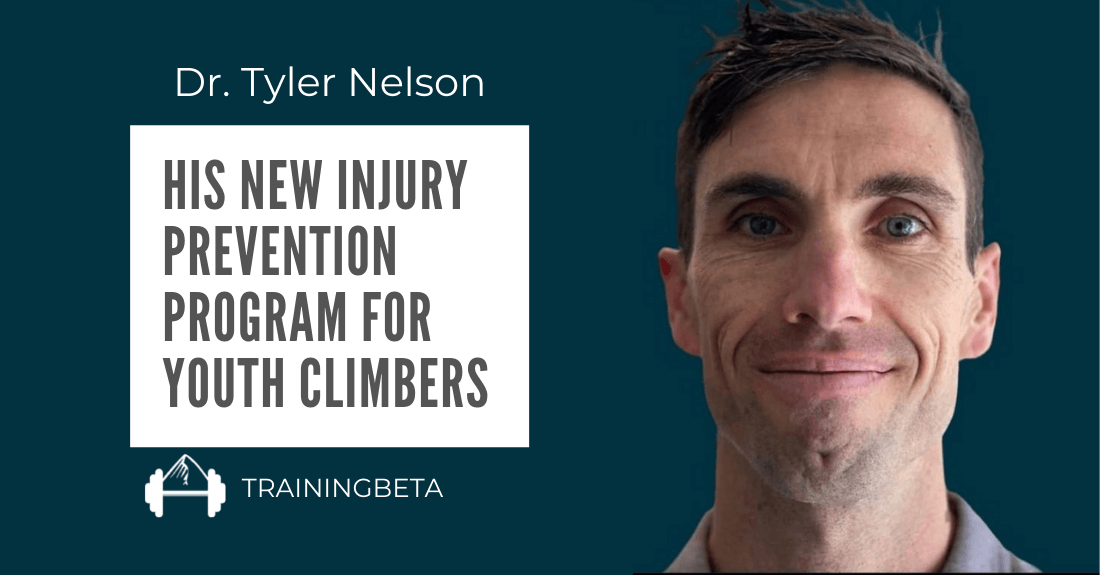As climbing and training become more and more popular, we are learning more and more about what actually works. Think back a couple years ago. We hadn’t even reached a consensus on whether or not hangboarding was an effective way to increase finger strength. Today, if you talk to anyone who knows about training, this fact is considered common knowledge.
While we definitely know more about training for climbing now than we ever have before, most of our knowledge is still based on our experience as climbers and not backed by scientific research. In other sports, this simply isn’t the case. The good news, however, is that more and more climbing specific research is being conducted every day. The main question for coaches and climbers interested in designing their own training programs is how to access the research being done and how to use it to inform training decisions.
Helping coaches and climbers engage with and influence the climbing research being done is exactly the goal of the new website Beta-Angel.com. Designed by climber and experienced coach Taylor Reed, Beta Angel is an extremely valuable resource and provides a digestible link between the everyday climber and the sports science world.
We highly suggest you check out the website. You’ll be floored by the amount of available information. Don’t just take our word for it though. Let Taylor Reed tell you exactly what the website is and how it can be used.
Enter Taylor…
Beta Angel
“Creativity is the unique and defining trait of our species; and its ultimate goal, self-understanding: What we are, how we came to be, and what destiny, if any, will determine our future historical trajectory.” – Biologist EO Wilson – The Origins of Creativity, EO Wilson (2017)
What is the science behind performance climbing? At this point in the development of climbing research, I prefer a different question: how can the current research support our creative efforts to become better climbers? Below, I’m going to describe how my website started, how it supports the bridge between scientific research and our creative efforts to produce better climbers, and I’m also going to provide a glimpse of what’s in the website’s inventory.
What is Beta Angel?
The Beta Angel website will:
- Keep a categorized inventory of research
- Provide a soapbox for the use of more rigorous methods used to analyze performance
- Keep you updated with the occasional blog by any researchers who want to showcase the practical side of their work
- Develop a network of coaches and their perspectives on training
The website’s audience are coaches who are training kids and want to know what the research says about growth plates, athletes who are curious about which energy systems to emphasize and what to do when they’re injured, advanced researchers who want to easily scan for their literature review, and budding researchers who want to jump in and consider writing a paper. We can derive practical aspects from research and use it creatively.

Belle looking slightly concerned about Taylor’s latest ‘idea’. Strangely, when asked, her coach couldn’t produce a citation for the method involving the large yellow bat. Photo: Jennie Jariel
Examples of Beta Angel at Work
You’re injured!
Pulley injuries are the most common climbing injuries. This fact probably isn’t surprising, but what you may not know is that there’s a significant amount of research into diagnosing and treating these injuries. For example, here are four highly useful articles:
- Research on pulley injury treatment in climbers: https://www.sciencedirect.com/science/article/pii/S0894113017301084)
- The state of pulley literature: https://www.ncbi.nlm.nih.gov/pubmed/27886830
- Surgical Treatment: https://www.ncbi.nlm.nih.gov/pubmed/27886830
- Diagnosis: https://www.ncbi.nlm.nih.gov/pubmed/29018907
Despite all this research, I can’t tell you how many times I’ve heard climbers with pulley injuries state, “Doctors just don’t understand climbing injuries.”
These climbers may be right, but by using Beta Angel you can be armed with information. For example, I’ve started sending this link (https://www.ncbi.nlm.nih.gov/pmc/articles/PMC3377907/) to climbers and pointing them to Figure 9. This figure can be printed off and handed directly to your doctor. They might glance at it and decide they don’t need it, but it gives us some level of control over our medical care.
Contact strength!
Researchers have developed a method which measures the “rate of force development” in fingers. It’s a measurement which is probably the closest researchers have come to exploring what some climbers refer to as “contact strength” rather than the more traditional “finger strength.”
The measure is still relatively new, but one of the more interesting findings was the extent to which “contact strength” declines compared to finger strength due to fatigue. (https://beta-angel.com/research/research-inventory/contact-strength/)
Having access to and evaluating this research, I considered two options: I could try to train their contact strength to resist fatigue, or I could devote time to exploring a number of body-specific coping mechanisms. Given the age of my climbers and research into growth plate injuries, I chose to spend extra time developing methods for mitigating fatigue using coping mechanisms.
Having access to this kind of research lets coaches make more informed training decisions.

A view of the website’s research inventory (www.beta-angel.com)
Strong Ladies in Rock Climbing!
I pay particular attention to research about females as I coach lots of female athletes. Like other upper-body specific sports, female climbers are more likely to report shoulder injuries and surgery (https://www.ncbi.nlm.nih.gov/pubmed/28644933). We also know that a major difference between sport climbers and boulderers lies in something called the “shoulder girdle” (https://www.ncbi.nlm.nih.gov/pubmed/8887209).
As a result of this knowledge, I tend to emphasize both injury prevention of the delicate rotator cuff muscles and labrum, and strengthening of lateral shoulder movement. This is another clear example of how Beta Angel is able to help coaches, trainers, and athletes alike make more informed training decisions by increasing the availability of research.

With hundreds of articles in the inventory, these are just random examples of how the research database can be used. There’s a lot more, and since research is iterative, the quality is increasing in leaps and bounds. Creativity, research, and direct applicability will all increase. The goal of Beta Angel is to help shape the conversation.
How to Use Beta Angel
The best way you can engage is to:
- Read the blog posts and follow my exploration of the World Cup data sets I’ve collected
- Scan the research inventory for your favorite subjects and tell me what you think has potential
- Like and follow the Beta Angel Facebook page. Until I get a forum up it’s the best place to get your fix of whatever research we’re interested in.
- Ask questions. Use my contact page or the Beta Angel Facebook page. If there isn’t a study that addresses your question, I can highlight it for researchers. The more questions we have, the more researchers will get creative about what to study.
- If you’re a coach, put up a coaching profile. I want to create a dynamic network of climbing coaches with different perspectives.
About the Author

Taylor Reed is an analyst specializing in disaster response strategy and evaluation. On the weekends and some evenings, he is a coach sponsored by Evolv Sports who has been lucky enough to have the support of three wonderful climbers who allow him to experiment on them: Arabella “Belle” Jariel, Ashleigh “LEAF” Kazor, and Charlie “Skittles” Osborne. He would also be remiss if he didn’t mention past support from three wonderful gyms in the DC area: Earth Treks, Sportrock, and Vertical Rock. He manages the website www.beta-angel.com




Leave A Comment